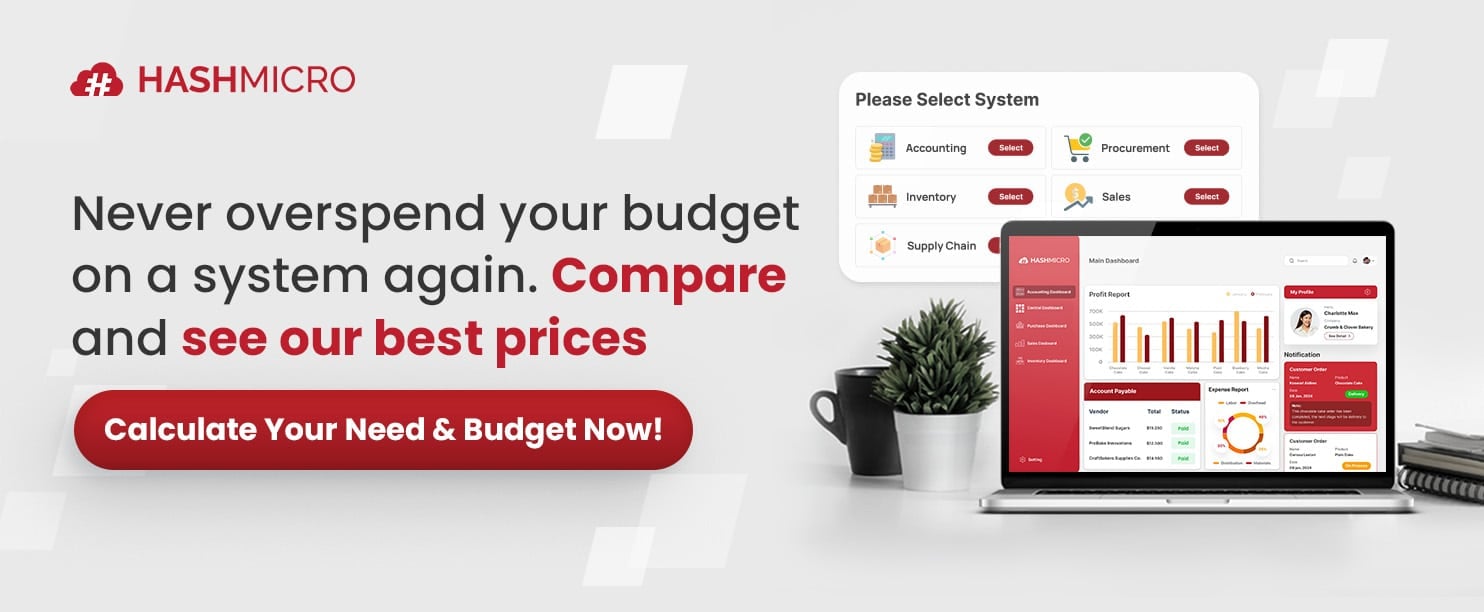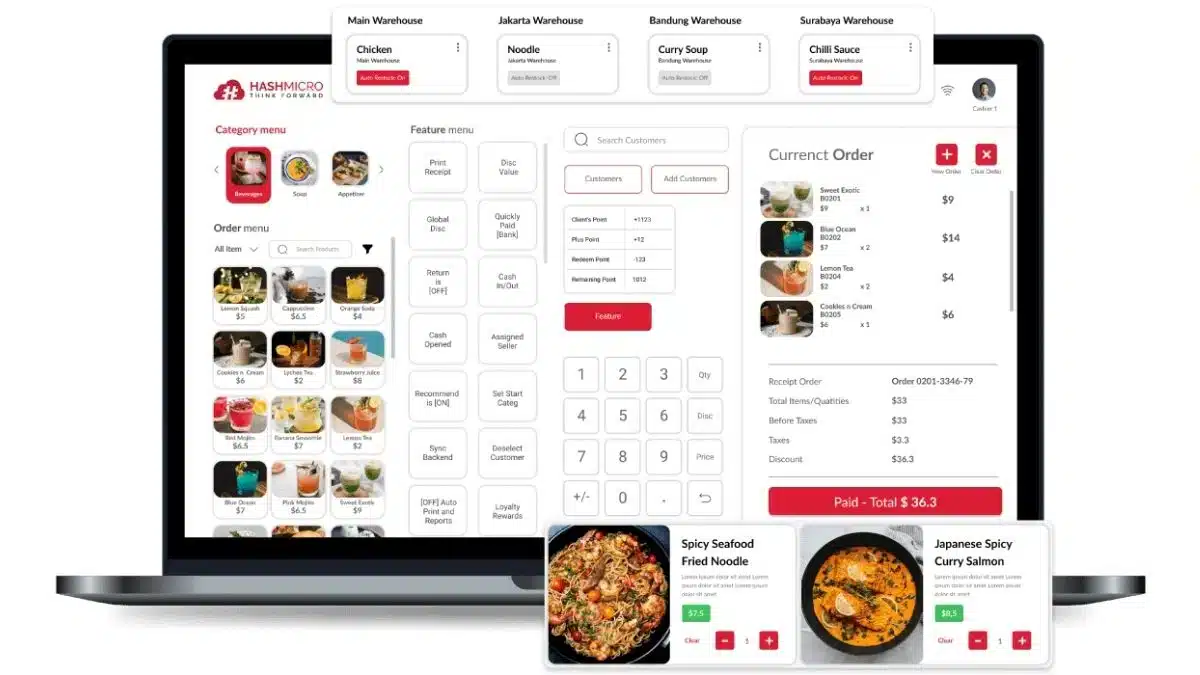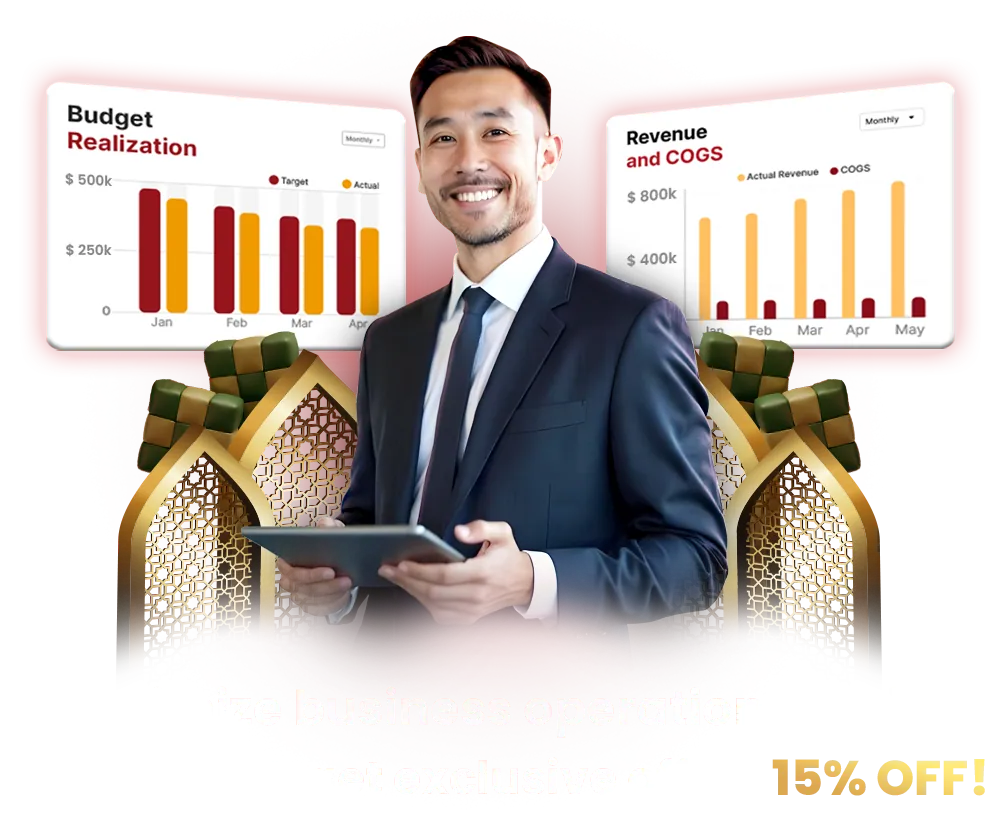With the rise of POS ERP applications, many individuals are confused by the distinction between POS and ERP. These expressions have become popular in business discourse as companies function increasingly without face-to-face customer encounters.
With several important functions, ERP software improves productivity and efficiency throughout a business’s operations. It strongly supports growth and helps streamline corporate procedures. POS systems, on the other hand, are more specialized.
POS software can be modified to meet every company’s specific requirements. On a single platform, it allows companies to handle payments, run promotions, monitor inventories, and generate automatic reports. Let’s join us on this journey. This article compares and explains ERP and POS programs.
Key Takeaways
|
Table of Content
Content Lists

What is a Point-of-Sale (POS) System?
The point-of-sale (POS) system is where a customer pays for goods or services and where sales taxes might be applied. Marketers highly value these spots because customers frequently buy high-margin goods or services at these important places.
Previously, companies placed point-of-sale (POS) systems close to store exits to encourage impulsive purchases from customers leaving. Using various POS sites, retailers can micro-market particular product categories and sway customers earlier in the purchasing process.
These days, POS can occur in virtual sales points like computers or mobile devices or in actual storefronts where credit card payments are processed via terminals and systems. This option is very useful for companies that don’t have a physical storefront.
Advantages of Using Point-of-Sale (POS) System
For modern businesses, especially those in the retail and hospitality industries, a Point-of-Sale (POS) system is an essential tool. Using a POS system has the following main advantages:
- Ease of use: Retail staff can handle point-of-sale (POS) systems more easily because they are built for users without technological expertise. On the other hand, ERP systems frequently need more training and are more advanced.
- Focus on sales: POS systems effectively handle sales transactions, essential for stores requiring a smooth and rapid checkout procedure.
- Lower implementation cost: Compared to technical and priced ERP systems, point-of-sale (POS) systems are typically less expensive and easier to deploy. Therefore, they are suitable for small and medium-sized enterprises.
- Simple inventory management: Real-time stock tracking is one of the essential inventory management services provided by POS systems. Although not as complete as ERP, it is frequently suitable for many small organizations.
- Payment support: POS systems typically offer a range of payment methods, such as digital wallets and credit cards, to facilitate client transactions. This is not usually the primary focus of ERP software.
Upgrade to a high-quality point-of-sale system in Malaysia to increase productivity and expansion. A good point-of-sale system helps your business succeed in a competitive marketplace by streamlining processes, improving client experiences, and offering insightful data.
Understanding ERP Systems

The Enterprise Resource Planning Software market in Malaysia is projected to reach ERP market growth of approximately US$210.64 million by 2025, with an anticipated annual growth rate (CAGR) of 5.68% from 2025 to 2029, resulting in a market volume of US$262.70 million by 2029.
ERP (Enterprise Resource Planning) systems have evolved from traditional client-server software to cloud-based solutions that enable remote, web-based access. An ERP system serves as a link between all of a big company’s computer systems. With an ERP system, various departments can access their systems via a single application and interface while still maintaining their systems.
ERP collects information on the statuses and operations of different divisions and makes it available throughout the company. Improve your operations with Malaysia’s top ERP software; the pricing schedule is available for download below.

Advantages of ERP Systems
Business management software can be revolutionized by implementing an Enterprise Resource Planning (ERP) system. A few benefits of using ERP instead of a traditional POS system exist. Here are the main advantages of ERP benefits:
- Multifunctional integration: ERP systems integrate multiple business system operations into a single platform, including inventory management, finance, and human resources. POS systems, on the other hand, are mostly concerned with cash management and sales transactions.
- In-depth data analysis: ERP offers thorough reporting and analytics on business performance, not just sales numbers. POS usually only provides data on daily or monthly sales.
- Supply chain management: ERP has tools for managing the supply chain, including logistics and procurement. POS systems lack these features, which reduces their usefulness for supplier and inventory management.
- Compliance and regulation: Numerous ERP systems come with solutions to assist companies in following industry rules and guidelines. These functionalities are typically missing from POS systems.
- Scalability: ERP systems may more readily be modified to accommodate business expansion by adding additional modules as required. The features and functionality that can be added to POS systems are typically more limited.
POS vs ERP: Which Should You Choose?
Given that ERP and POS systems service different markets, it is essential to comprehend their differences. POS software improves store operations and customer contact by recording customer orders, processing payments, and concentrating on sales transactions.
Scope divides ERP vs POS in the debate. ERP manages more general tasks like research, procurement, and quality control, linking departments for smooth information flow, while POS maximizes sales and enhances customer service.
Consider your company’s unique requirements when deciding between an ERP and POS system. ERP systems help bigger companies with complicated operations, whereas point-of-sale (POS) systems are ideal for retail settings that require speedy transactions.
The choice ultimately comes down to industry and company size. While larger businesses may find ERP systems more useful for managing interrelated processes and data, smaller stores prefer a targeted point-of-sale solution.
Optimize Your Business Operation with HashMicro ERP Software

HashMicro is the best-in-class ERP software in Malaysia to advance your business. HashMicro ERP system already includes HashMicro POS Software, so you have it all in a package at one price. HashMicro POS software is a comprehensive solution designed to assist companies in managing inventory, streamlining sales transactions, and enhancing customer satisfaction.
Businesses can create thorough sales records, track stock levels, and automate pricing modifications with HashMicro POS. The system is designed to interface with other crucial business processes, such as accounting and CRM, for a more effective workflow. Below is the list of some HashMicro POS unique features:
- Online-offline hybrid: The HM POS module can now facilitate offline mode, where when the system loses connection, the POS system can still be used. In addition, if the connection returns to normal, data entered into the system while offline can still be recorded by the system (data is not lost)
- Auto-triggered promotion based on Card Number (BIN): The HM POS system can read and identify the BIN number of each debit/credit card. So, if a credit card/debit card offers a certain promotion, the system can automatically calculate the discount during the transaction.
- Loyalty management: The promotion system uses redeemable points. Customers can register as members to get these points.
- Promotion program: The HM system has a complete promotional program for retail companies, such as buy one get one and discount on certain days.
- Camera integration: Integration with a camera to capture customer demographics. The company will know approximately the gender and age of the customers.
Businesses looking to improve customer happiness and operational efficiency must invest in the correct point-of-sale technology. By utilizing POS software, companies can streamline transactions and concentrate on expanding their operations. If you’re looking for a reliable ERP solution, consider HashMicro to help optimize your business.
Conclusion
Although POS and ERP systems may appear very different initially, they both seek to increase business productivity. While ERP offers a comprehensive solution for managing daily activities like sales and procurement, point-of-sale (POS) software is a modern-day cash register.
If you’re looking for a system that integrates several operations and streamlines processes, consider ERP options that fit your business demands. Features like promotion management, payment processing, and automated reporting are all included in HashMicro’s ERP software, which can be customized for various businesses.
You’ll also gain from features like camera integration, the ability to conduct online and offline transactions, reliable statistics, and the ease of managing several branches. Check out our free demo now!

Frequently Asked Questions
-
Is POS included in ERP?
Yes, POS can be part of an ERP system. ERP focuses on sales transactions while ERP integrates broader business processes.
-
What are the benefits of integrating POS with ERP?
Integration streamlines data flow, enhances real-time reporting, improves inventory management, and provides better insights into sales.
-
Can a business operate with just a POS system?
Yes, but as a business grows, using an ERP alongside POS improves efficiency and supports scalability.































